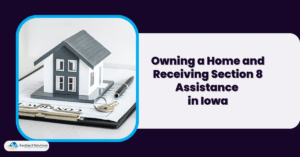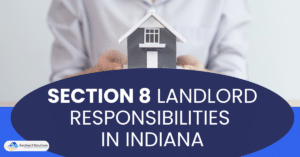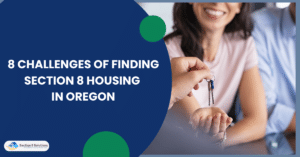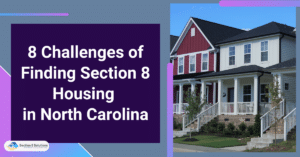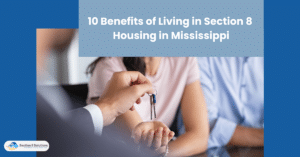The state of Georgia is known for its warm Southern hospitality, but unfortunately, not everyone has access to safe and affordable housing. Georgia’s federally funded Section 8 program helps low-income families, seniors, and disabled people rent.
In this blog, we’ll explore the Georgia Section 8 program in more detail, including its benefits, application process, and impact on Georgia communities. Let’s take a closer look at how this program is helping to provide Southern hospitality housing to those who need it most.
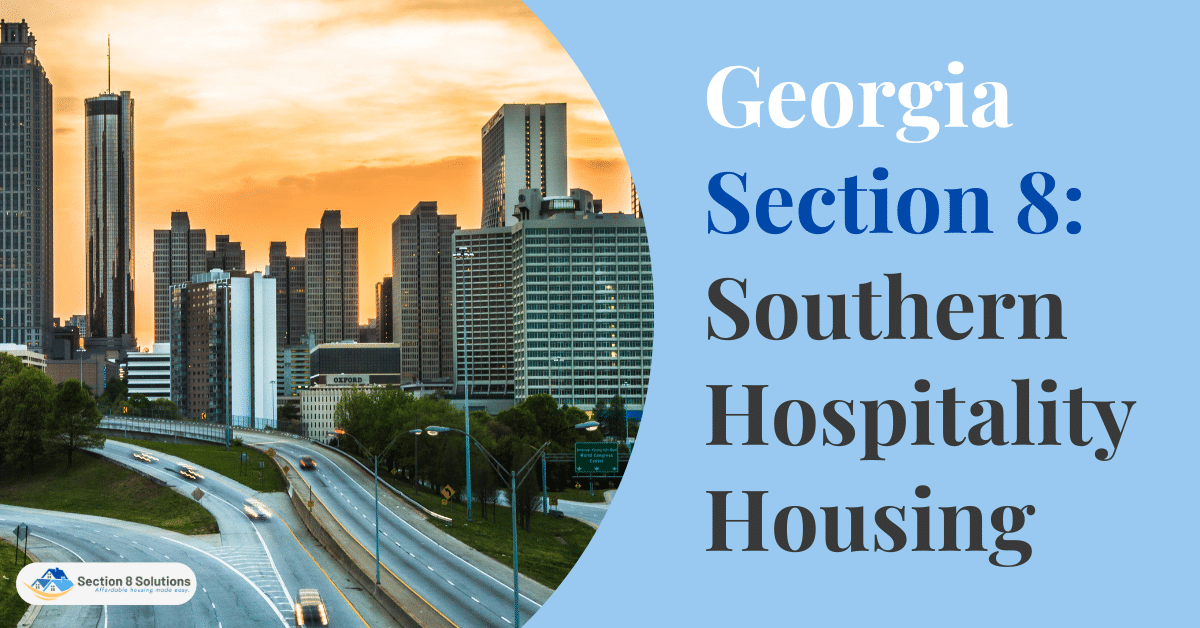
What is the Georgia Section 8 Program?
The federal Housing Choice Voucher Program, often known as Georgia Section 8, helps low-income families, seniors, and people with disabilities find a safe, affordable home. HUD runs the federally financed program. Eligible Georgia Section 8 participants receive vouchers for rent.
Participants choose their rental apartment after receiving the coupon. HUD safety and quality rules apply to rental units. Georgia Section 8 candidates must meet income requirements. Applicant households must earn less than 50% of the region’s median income. Very low-income households (below 30% of the region’s median income) are prioritized.
In addition to income requirements, applicants must also meet other eligibility criteria. They must be a U.S. citizen or have eligible immigration status, and they must pass a criminal background check. Applicants who have been convicted of certain crimes may be ineligible for the program.
The Georgia Section 8 program also has certain preferences for eligible participants. For example, priority is given to families with children, elderly or disabled households, and those who are homeless or at risk of homelessness.

Benefits of the Georgia Section 8 Program
The Georgia Section 8 program is designed to provide rental assistance to low-income families, seniors, and individuals with disabilities. This program offers numerous benefits to participants, including access to safe and affordable housing, financial stability resources, and support services. In this section, we’ll explore the benefits of the Georgia Section 8 program in more detail.
1. Provides Access to Safe and Affordable Housing
Low-income families, the elderly, and people with disabilities need secure, affordable housing, and Georgia Section 8 provides it. Eligible participants receive rental assistance to find a suitable rental apartment within their budget. This can minimize homelessness and improve living circumstances for program participants.
The program works by providing eligible participants with a voucher, which can be used to pay a portion of their rent to the landlord. The amount of the voucher is based on the family’s income and the local fair market rent for the area. Participants are responsible for paying the remaining portion of the rent to the landlord.
Georgia Section 8 promotes secure, healthy living by providing safe, affordable housing. Program members’ health, stress, and well-being may improve. The program also strengthens families and communities by providing a strong foundation for life.

2. Offers Financial Stability Resources and Support Services
Georgia Section 8 provides financial stability resources and support to help participants become financially independent and stable. Financial education, career training, and other support services help program participants develop the skills and knowledge needed for long-term success.
By providing access to financial stability resources and support services, the program helps participants build the skills and knowledge necessary to manage their finances and achieve greater financial independence. This can help to break the cycle of poverty and create a more stable and prosperous future for participants and their families.
For example, the program may provide financial education courses, which can help participants learn how to budget, save, and manage their finances more effectively. Additionally, job training and employment services may be available to help participants find stable and well-paying employment, which can further improve their financial stability and independence.
Georgia Section 8 helps program participants overcome poverty by providing financial stability resources and support. Participant and family health, stress, and well-being can improve.

3. Reduces Homelessness and Increases Economic Stability
The Georgia Section 8 program plays an important role in reducing homelessness and increasing economic stability for program participants. By providing rental assistance and support services, the program helps individuals and families find and maintain safe and affordable housing, which can reduce the risk of homelessness and promote greater economic stability.
Homelessness is a significant issue in Georgia, and the Georgia Section 8 program helps to address this problem by providing rental assistance to those in need. By reducing the financial burden of housing costs, the program helps program participants to maintain stable housing, even in the face of financial challenges.
In addition to reducing the risk of homelessness, the Georgia Section 8 program also helps to increase economic stability for program participants. By offering financial stability resources, job training, and other support services, the program helps individuals and families build the skills and knowledge necessary to achieve greater financial independence and stability.

4. Improves the Overall Well-Being of Program Participants
The Georgia Section 8 program improves the overall well-being of program participants by providing safe and affordable housing, financial stability resources, and support services. By addressing the root causes of poverty, the program helps participants to achieve greater economic stability and independence, leading to improved living conditions and overall well-being.
Georgia Section 8 helps participants find safe, affordable housing that matches their needs. The initiative helps members achieve better physical and mental health by reducing housing expenditures.
Georgia Section 8 provides safe, affordable housing and financial stability resources to assist participants to become financially independent. Financial education, job training, and other support services assist members to manage their finances and succeed long-term.

5. Positive Impact on Mental Health Outcomes
The Georgia Section 8 program has a positive impact on mental health outcomes for program participants. Access to safe and affordable housing, as well as financial stability resources and support services, can lead to reduced stress and improved mental health outcomes for participants.
Housing insecurity and financial instability are significant stressors that can negatively impact mental health outcomes. The Georgia Section 8 program helps to reduce these stressors by providing rental assistance and financial stability resources, which can help to reduce financial burdens and create more stable living environments.
In addition to providing safe and affordable housing, the Georgia Section 8 program also offers support services that can improve mental health outcomes for program participants. These services can include mental health counseling, job training, and other support services that help participants build the skills and knowledge necessary to manage their mental health and achieve greater overall well-being.

6. Guarantees Rent Payments and Support Landlords
The Georgia Section 8 program provides benefits not only to program participants but also to landlords who participate in the program. One of the key benefits for landlords is the guarantee of rent payments.
When landlords participate in the Georgia Section 8 program, they enter into a contract with the program that guarantees timely and reliable rent payments. This can be a significant benefit for landlords, as it helps to reduce the risk of late or missed rent payments, which can cause financial strain and create instability in rental properties.
In addition to guaranteed rent payments, the Georgia Section 8 program also provides support to landlords by offering resources and support services that can help to ensure the success of their rental properties. These resources can include landlord training, property management assistance, and other support services designed to help landlords navigate the program and manage their properties more effectively.

Applying for the Georgia Section 8 Program
The Georgia Section 8 program is designed to provide rental assistance to low-income families, seniors, and individuals with disabilities. To apply for the program, applicants must follow a specific application process and provide certain documentation.
The first step in applying for the Georgia Section 8 program is to complete an application form. This form can be found online or in person at a local housing authority office. Applicants will need to provide personal information such as their name, date of birth, and social security number.
In addition to the application form, applicants must also provide documentation to verify their eligibility for the program. This documentation can include proof of income, such as tax returns or pay stubs, as well as proof of citizenship or legal residency status. Applicants may also need to provide documentation related to their housing situation, such as lease agreements or utility bills.
Once the application and documentation have been submitted, applicants will be placed on a waiting list for the program. The length of the waiting list can vary depending on the availability of funding and the demand for the program in a particular area.

Financial Stability Resources for Georgia Section 8 Participants
The Georgia Section 8 program not only provides rental assistance to low-income families, seniors, and individuals with disabilities but also offers resources for financial stability. These resources aim to help participants achieve financial independence and improve their overall quality of life.
One key resource provided by the program is financial education. The program offers financial literacy workshops and counseling services to help participants learn how to manage their finances effectively. These resources can include guidance on budgeting, credit management, and debt reduction strategies.
In addition to financial education, the program also offers job training and employment resources. This can include job search assistance, skills training, and access to employment resources such as job fairs and career counseling.
The importance of financial education and job training cannot be overstated. By equipping participants with the skills and knowledge they need to manage their finances effectively and secure stable employment, the program can help them achieve financial stability and independence.

Impact of the Georgia Section 8 Program on Georgia Communities
The Georgia Section 8 program has had a significant positive impact on communities throughout the state. By providing rental assistance to low-income families, seniors, and individuals with disabilities, the program has helped reduce homelessness and increase economic stability in Georgia.
The initiative reduced homelessness in Georgia. The initiative has kept families and individuals off the streets by providing inexpensive housing options. By relieving emergency shelters and other resources, helps the community as a whole.
Georgia Section 8 has reduced homelessness and stabilized the economy. The program helps low-income families pay rent, freeing up money for food and healthcare. This can reduce poverty and improve the community’s economy.
Statistics on the success of the program in Georgia are encouraging. As of 2021, the program served over 53,000 households in the state, with an average monthly rental assistance payment of $652. The program has also been shown to have a positive impact on the overall well-being of program participants, with increased stability and improved access to resources.

Conclusion
The Georgia Section 8 program provides a vital lifeline to low-income families, seniors, and individuals with disabilities by providing access to safe and affordable housing. The program has numerous benefits, including improving financial stability, reducing homelessness, and increasing overall well-being. Through financial stability resources and support services, the program also helps participants achieve long-term success.
If you are in need of housing assistance, we encourage you to apply for the program and take advantage of the resources available. Safe and affordable housing is a basic human need and a fundamental right, and the Georgia Section 8 program is helping to make that a reality for thousands of residents across the state.



